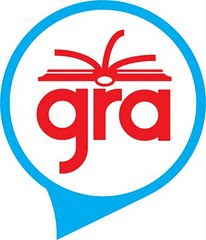Dear Parent/Guardian:
During the month of September, our school will be embarking on a special project,
an all-school book club called One School, One Book. Every family will receive a
copy of the same book – Gary Paulsen’s Hatchet - and asked to read it over the
month of September. I am personally asking you to make the time so your family
can participate in this special activity.
One School, One Book is a novel program in that children at all grade levels will
all be reading and listening to the same book. Strange or daring as that may seem,
it actually makes sound educational sense. Reading professionals recommend
reading material out loud that is beyond a child’s own reading level. And we also
believe that you can and should continue reading chapter books with your older
children, even when they are able to read by themselves. We have selected a title
that can be followed and understood and enjoyed by younger students, but that will
still captivate and stimulate older children.
Reading aloud at home is valuable because it better prepares your child to be an
effective reader. But it is also a fun, worthwhile family activity. With the One School,
One Book program, we aim to build a community of readers at our school. Everyone -
students, parents, teachers, even administrative staff - will be participating, and we
can all reap the many benefits.
Your child will receive his/her copy of Hatchet on Monday, September 10. Each
class is preparing for the book by completing a team building activity related to the
book. When the book comes home, you will also receive a reading schedule
bookmark so you can keep up at home. This same schedule is also on the second
page of this letter. Generally you will be asked to read a chapter a
night – about 15 minutes per night.
In school, your child will be invited to answer daily trivia questions to encourage
and reward attentive, aggressive reading & listening. You will soon find that
your child will take pride in knowing and anticipating the details of the story. In
class, there may be various activities which discuss or explore the book. You will
want to make sure your family keeps up with the reading schedule so your child
can be included. Throughout the month, everyone will be talking about Hatchet!
Good luck! I hope to talk with both you and your student sometime this month
about Brian and how he survives with just a gift from his mother. Feel free to
share pictures of your family reading with the hashtag #norwayreads on social
media. “When a whole school reads a book, there’s a lot to talk about.” With your
help, we can build a Community of Readers at our school.
Bridget Speer
Norway Elementary Teacher Librarian, Media & Technology Teacher, Talented & Gifted
Instagram: @mrsbspeer
Twitter: @sewfun82
Reading Schedule for
Hatchet by Gary Paulsen
Week of September 10:
Monday: Chapter 1 p. 1-12
Tuesday: Chapter 2 p. 13-24
Wednesday: Chapters 3 & 4 p. 25-39
Thursday: Chapter 5 p. 40-51
Friday: Chapter 6 p. 52-62
Week of September 17:
Monday: Chapter 7 p. 63-73
Tuesday: Chapters 8 & 9 p. 74-88
Wednesday: Chapter 10 p. 89-97
Thursday: Chapters 11 & 12 p. 98-112
Friday: Chapters 13 & 14 p. 113-128
Week of September 24:
Monday: Chapter 15 p. 129-137
Tuesday: Chapter 16 p. 138-149
Wednesday: Chapter 17 p. 150-160
Thursday: Chapter 18 p. 161-170
Friday: Chapter 19 & epilogue p. 171-181



